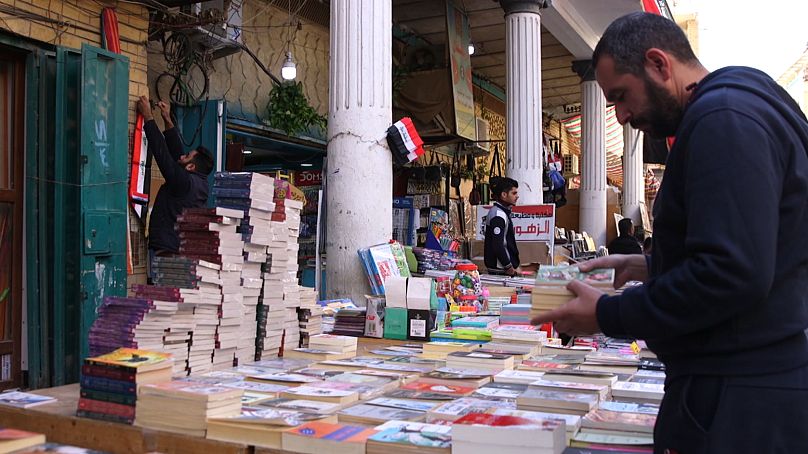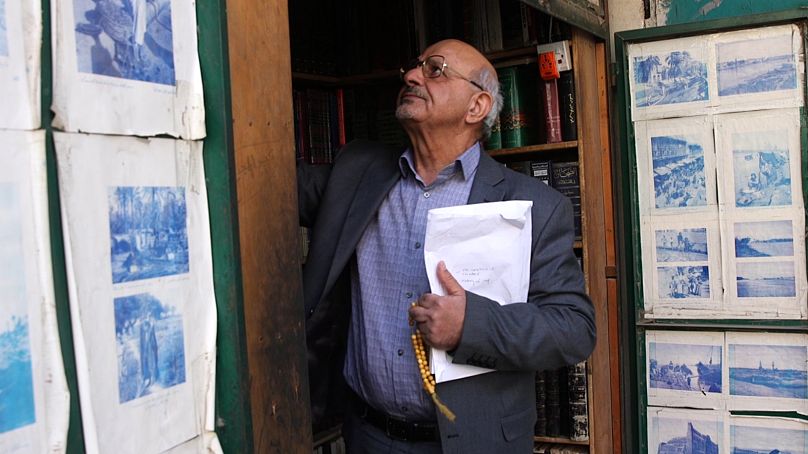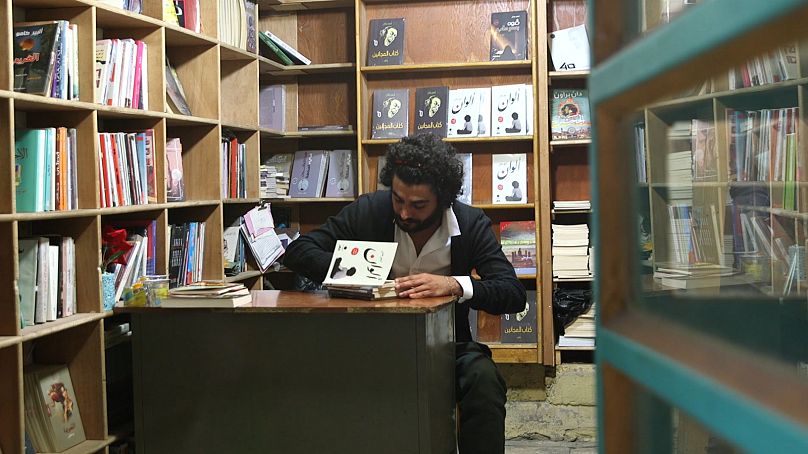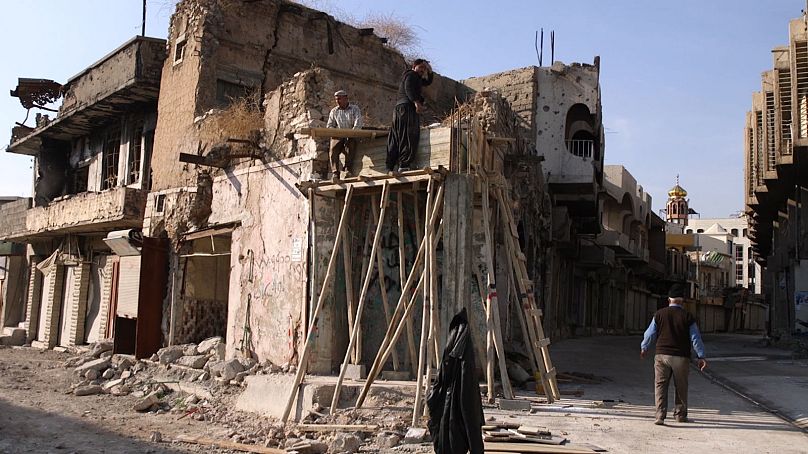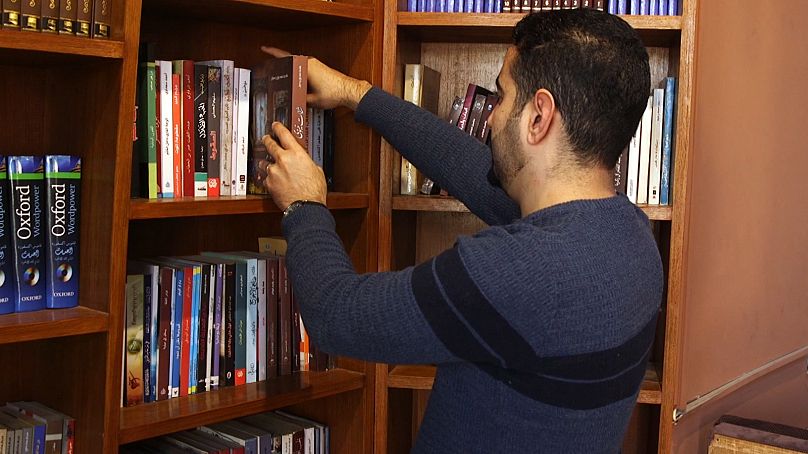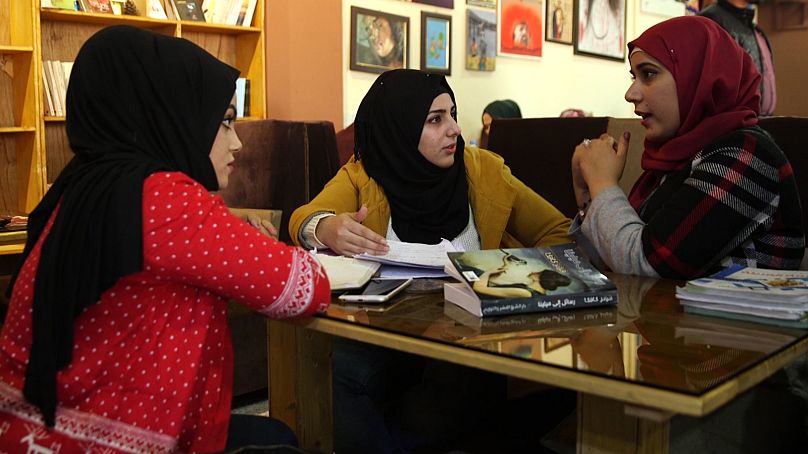Despite years of war, censorship and dictatorships in Iraq, authors and intellectuals have determinedly gathered to exchange ideas and share their experiences.
Despite years of war, censorship and dictatorships in Iraq, authors and intellectuals have determinedly gathered to exchange ideas and share their experiences.
For centuries, Al Mutanabbi Street in Baghdad has been at the beating heart of Iraq’s literary community.
Named after a 10th Century Iraqi poet, the avenue, which is lined with bookstores, publishing houses and outdoor bookstalls, has a story dating back to the Ottoman Empire.
In 2007, the location was subject to a terror attack which killed around 30 people and injured hundreds more.
Over time, what was previously a painful embodiment of conflict underwent something of a literary renaissance.
Today, academics and writers come from across the country to discover new manuscripts and discuss their work, especially on Fridays, the street’s busiest day.
Poet Sa’eed Al-Rodhan has been coming here since he was a young man.
“As someone interested in culture, I attended this street for the first time during the 1970s,” he muses. “Now, I am publishing my books in this street. We can say, it is the vein of Iraqi culture.”
Adham Adul, another poet, owns a shop on the street.
Passionate about political and social justice, he has published five books on the subject. His words came at a price and saw him spend three months in prison.
Like many authors, Adul believes that a love of literature is imbedded deep in Iraqi people's hearts.
“There is an old expression that says, ‘If you want to be a poet, just be an Iraqi man,’” he says. “So, I found that poetry could really change people, can change their minds, can change their thoughts, and can change their ideologies. Because we are people, in spite of all the violence, we have goodness in our hearts and we are peaceful.”
Mosul’s literary scene
Mosul is the second-largest city in Iraq and it sits at the crossroads of ancient trading routes.
For centuries, Al-Nujaif Street has been home to a parade of bookshops and libraries.
When the so-called Islamic State group entered the city in the summer of 2014, however, the group methodically destroyed many libraries and burned books.
Osama Abdulrahman Al-Krikchy and his family have owned a bookshop on this street for many generations.
“The street was stable and it was the heart of the city. It was always crowded with people, from morning until night,” he recalls. “Then, when problems started, and ISIS entered, slowly, problems erupted in it. People started talking less..and so it got quieter. [There was] instability and discomfort.”
During the battle to retake the city, Al-Nujaifi Street was completely destroyed. It took Al-Krikchy more than a year to rebuild his store and reopen for business.
Following the liberation of Mosul, another book lover, Fahad Al-Gburi, felt that the only way for people to heal from the trauma of war was to reconstruct the city’s culture.
Four months later, the engineer-turned-entrepreneur opened the ‘Book Forum’, a cultural café in East Mosul.
Today, Iraqis gather there to openly debate literature, music, and politics – all of which were previously banned. The cafe also hosts a female writers club.
E-books: A popular choice during difficult times
The young women who frequent the café, explain that books were their sanctuary during the occupation. With literature not on sale, a secret library of electronic books emerged, and USBs filled with manuscripts popped up on the black market.
“In the time of ISIS, there was fear that we might die any minute,” says Aya Abduljabbar Salim, a member of the writer’s club. “That is why I decided to immerse myself in books – burying myself in reading and writing. I stopped being scared of the war.”
Brought together by their passion for words, many aspiring authors in Iraq believe that the peace of their city lies in literacy.
“Books are always important, yet our society wasn’t very aware of the importance of reading,” says Aisha Abdulsattar Abdullah, another member of the writer’s club. “We saw what happened to us because of that. We saw the level of destruction it caused because we didn’t spread the knowledge that was stored in these books.”
SEEN ON SOCIAL MEDIA: NEW CHAPTERS
Mohammed browsed Al Mutanabi Street for his next read.
Muhammad Ali captured this moment between friends in Iraq’s famous book market.












